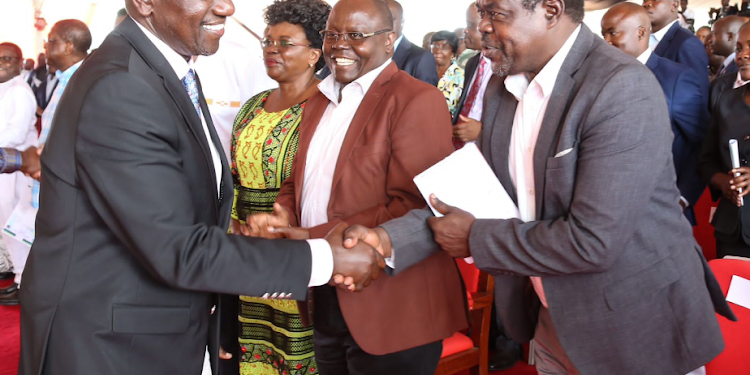Busia Senator Okiya Omtatah went bare-knuckle on President William Ruto regarding the Finance Bill 2023 during an interdenominational prayer service at Busia Stadium. Omtatah directly addressed the President, cautioning him against being misled by his allies and asserting that the bill violated certain aspects of the Constitution. He urged the President to reconsider the problematic elements of the bill to avoid a court battle, emphasizing his allegiance to the Constitution.
President William Ruto, also speaking in Busia during the prayer gathering, defended the proposals of the Finance Bill 2023. He explained that the three percent Housing Levy was carefully designed to generate employment opportunities for Kenyan youth and facilitate the construction of affordable housing. Ruto highlighted the employment prospects for various skilled professionals and laborers in the housing sector, aiming to uplift the common Kenyan through job creation. He criticized employed individuals for inciting the unemployed against supporting the Housing Levy, which he believed would undermine the affordable housing agenda and employment prospects.
Meanwhile, Kenya’s middle class faces a challenging economic situation. The World Bank’s findings from December revealed that a third of the middle class was on the brink of sliding into poverty due to the depressed economy and reduced disposable income. The manufacturing sector, a significant employer, experienced slowed growth, potentially leading to further economic decline. Concerns have been raised by industry leaders, including the Kenya Association of Manufacturers (KAM) and the Kenya Private Sector Alliance (KEPSA), regarding the provisions in the Finance Bill. They argue that certain measures, such as increased taxes on raw materials, could make Kenya an unattractive trade destination, potentially diverting trade to other African countries. KAM and KEPSA caution that these tax proposals may increase manufacturing costs, negatively impacting local industries and jeopardizing thousands of jobs.
The outcome of the Finance Bill has significant implications for the middle class and the overall economy. If passed without revisions, it may exacerbate the challenges faced by the middle class, leading to job losses and a further decline in economic well-being. The bill’s potential negative consequences on employment and tax revenue generation underscore the need for careful consideration and a balanced approach.
By Ian Kamsa

